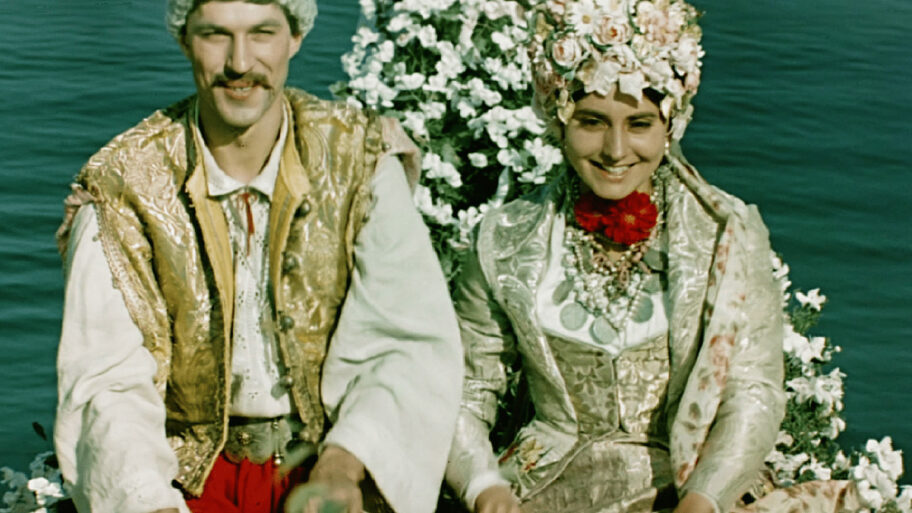October 23–29, 2025
Ukrainian Poetic Cinema: Rebuilding National Identity
“The main narrative model of this movement was the mythologized parable, which made it possible to convey the often complex and deep concept of the film in a laconic and figurative manner.”
Elena Rubashevska, Ukrainian Poetic Cinema
Following the death of Joseph Stalin in 1953, there was a temporary thaw in cultural policy across much of the Soviet sphere of influence in Europe. For the first time since 1934, when the official cultural doctrine of “socialist realism” was adopted, filmmakers were allowed to produce content tailored for regional audiences. In Ukraine, this led to the creation of works in a style dubbed by film critic Janusz Gazda as “Ukrainian poetic cinema.” In revolt against the linear, formulaic storytelling mandated for decades by the State, contributors to this movement developed an expressive cinematic language of their own, one distinctly Ukrainian in content and form. The movement was short-lived, flourishing in the 1960s and 1970s, with some important examples outside that period.
Ukrainian poetic cinema explores themes and stories from Ukrainian literature and folk cultures, especially from the western regions of Ukraine that were less affected by the Holodomor and less stifled by cultural erasure through Russification. Internationally, the most well-known of these films is Sergei Parajanov’s Shadows of Forgotten Ancestors (1965). Other films from this movement were never allowed to enter international competitions by the Soviet regime; many did not reach audiences at all until the early 1990s. This series offers the chance to see two of the brightest examples of Ukrainian poetic cinema, in signature films by Yurii Illienko and Borys Ivchenko.
In the 1960s, producers at Dovzhenko Film Studio wanted to adapt every story in Mykola Hohol’s first collection, Evenings Near the Village of Dikanka (1832). Although considered a great avatar of Russian literature (and better known in the English-speaking world under the Russian name Nikolai Gogol), Hohol was in fact born and raised in Ukraine, where these stories are set. Only two of the project’s films were ever completed: Illienko’s The Eve of Ivan Kupalo (1968) and Ivchenko’s The Lost Letter (1972). Both films draw deeply from Ukrainian folk traditions and from the painful history of Ukraine. Soviet authorities objected to the expressions of Ukrainian identity and banned them immediately upon release.
Alina Senchenko
Series curator
Co-presented with Maple Hope Foundation

Funded (in part) by the Shevchenko Foundation Ukrainian Canadian Veterans Fund

List of Programmed Films
| Date | Film Title | Director(s) | Year | Country |
|---|---|---|---|---|
| 2025-Oct | The Eve of Ivan Kupalo | Yurii Illienko | 1968 | USSR |
| 2025-Oct | The Lost Letter | Borys Ivchenko | 1972 | USSR |
Note
Film notes written by Alina Senchenko
Alina Senchenko is a Vancouver-based Ukrainian artist and curator whose practice explores the duality of immigrant identity, belonging, displacement, memory, diasporas, stereotypes, oral histories, and reflection on recent events in Ukraine and around the world.
